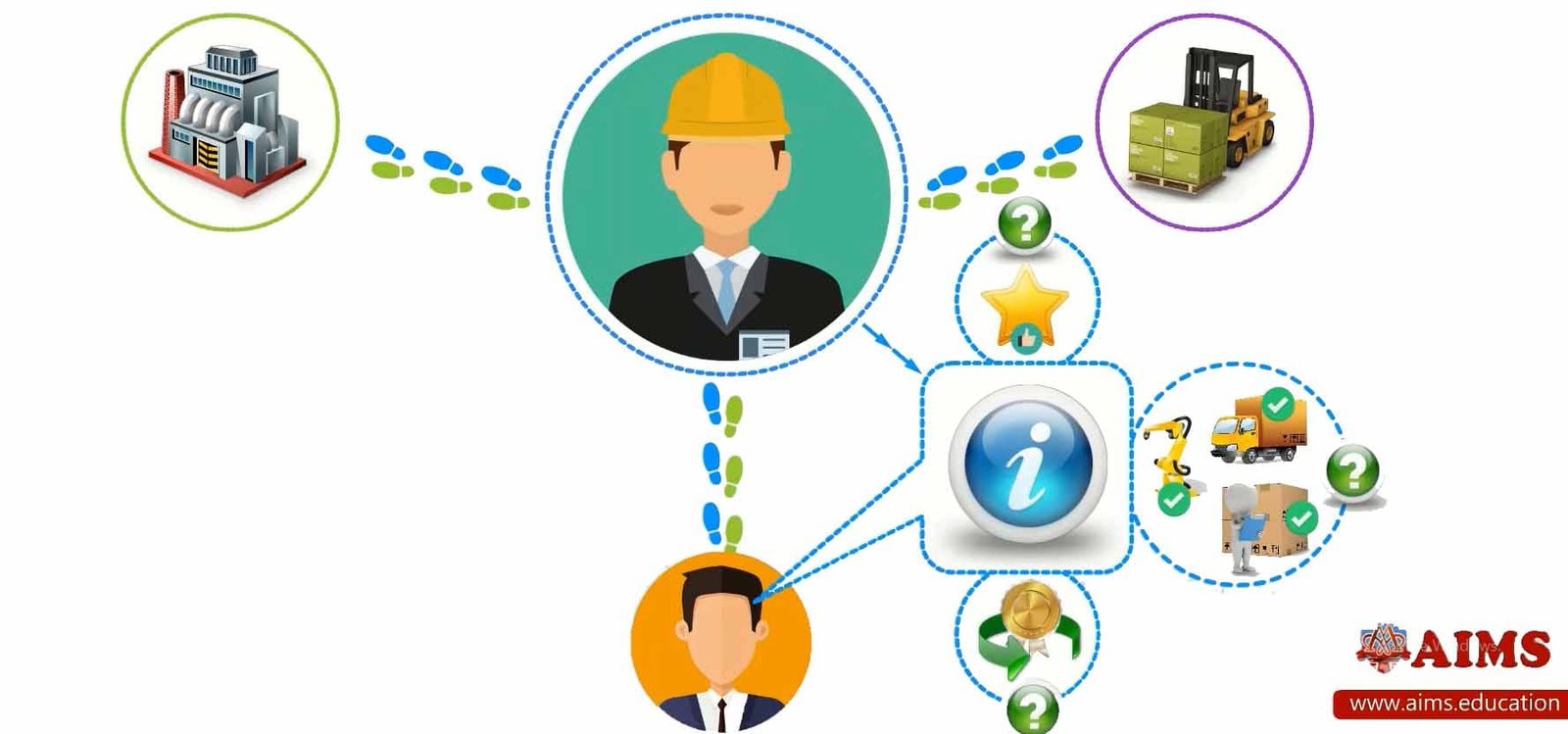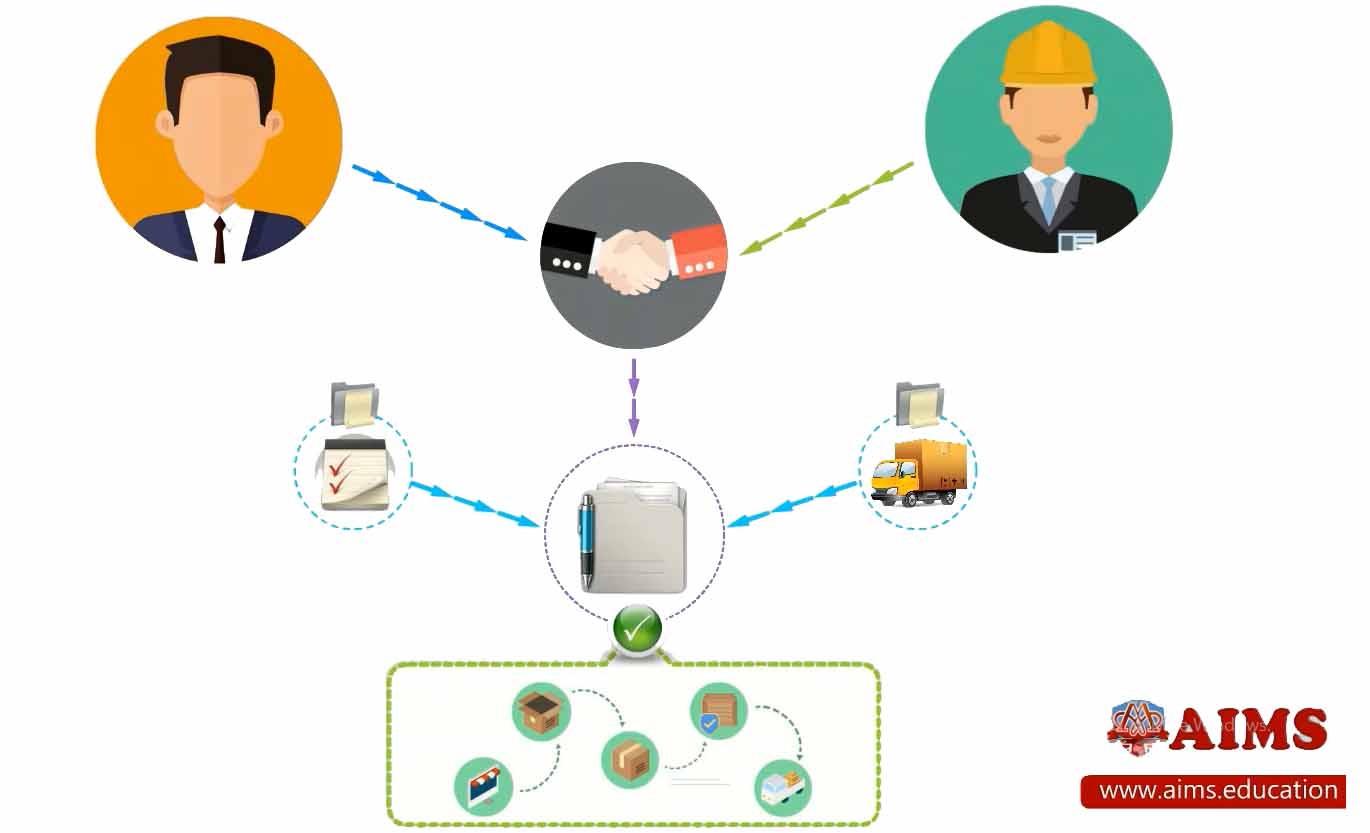What is a Procurement Manager?
Are you pursuing the position of Purchasing Manager or Procurement Manager? Then you should know that these two are the same thing. The responsibilities of this job remain the same, regardless of how the employer decides to call this position. Before applying or even accepting such a job, it is highly recommended to know the procurement manager’s job description and what a procurement manager does. Well, Procurement Manager is a person responsible for overseeing and managing the purchasing activities of an organization. Procurement roles and responsibilities include supplier evaluation, purchase contract negotiation, and managing procurement-related risk to ensure the efficient acquisition of goods and services.
To make sure that you will fit in the right position and how you will be able to deliver great results, you need to be aware of the procurement manager roles and responsibilities. Here are 10 key responsibilities, so that you will grow familiar with this position.
10 Key Procurement Manager Roles and Responsibilities
1. Supplier Evaluation
Before the company gets to sign a contract with a particular supplier, you will have to evaluate the supplier to see if it is worth collaborating with it. You will look at the price and quality of the provided items, and how fast delivery can be completed.
2. Interviewing Vendors
You will also have to talk, face to face, with vendors, to learn more about their products and services, to make sure that your evaluation is correct and comprehensive.
3. Visiting Supplier Plants and Distribution Centers
Visiting the supplier’s plant and distribution center can tell you a lot about a particular supplier. Is the supplier meeting the standards? Is it working efficiently in order to meet your company’s demand? Are the manufacturing, storing, and shipping conditions appropriate? These and other questions will be answered during such visits.
4. Attending Trade Shows, Conferences, and Meetings
Procurement roles and responsibilities are always in a constant learning process, as it is mandatory to be up to date with the latest products and suppliers, conditions of the market, and emerging trends.
5. Unrolling Analysis of Price Proposals and the Financial Reports of the Company
Your company will always want to obtain the best price for each acquisition, so it is your duty to analyze the price proposals of suppliers and the financial reports of the company, before negotiating the best price. Your company will always want to obtain the best price for each acquisition, so it is your duty to analyze the price proposals of suppliers and the financial reports of the company, before negotiating the best price.
6. Negotiation of Various Contracts
One of the purchasing manager responsibilities is to close great deals on behalf of the company, so being a good negotiator is definitely an advantage. The conditions of the contract are details for those dealing with global supply chain management.
7. Collaboration with Suppliers for Agreeing Upon Policies
You will have to collaborate with the suppliers in order to come up with convenient policies that will determine details concerning the shipment of products and other details that will keep the workflow steady.
8. Collaboration with Staff Members for Meeting the Standards
Procurement manager responsibilities include the staff members’ training concerning the acceptable quality of the received goods, how to determine defective or unacceptable goods, and what actions to take in such cases. So you will be in charge of their preparation when it comes to such knowledge.
9. Monitoring and Evaluation of Unrolling Contracts
Once a contract is signed, you will have to keep an eye on it to make sure that the vendors will respect their part of the contract. And, of course, when needed, you will have to make the required adjustments to the existing contracts.
10. Maintaining and Reviewing Records of Bought Items
You will constantly have to be aware of the items that have been purchased. Thus, you need to have up-to-date inventories, plus detailed information about a product’s price, performance, and delivery.

Procurement Manager Job Description
To understand what a purchasing manager does, here is an example of a procurement manager job description:
- Conducts negotiations with sellers and vendors for the best possible prices.
- Select the right suppliers who will provide products or services that the company needs.
- Ensure that the company gets the best possible terms and conditions for the purchased goods or services.
- Inventory and logistics management for the purchased items.
- Order new supplies when they are running out.
- Get in touch with the finance department for the purchased products.
- Plan and predict procurement needs based on market trends, seasonality, and business goals.
- Develop and implement procurement strategies to optimize both efficiency and cost-effectiveness.
- Ensure that the company follows its contractual obligations.
- Oversee the renewal, termination, or renegotiation of procurement contracts.
- Keep updated knowledge of procurement best practices, and market conditions.
- Ensure that goods being purchased comply with relevant laws, regulations, and company policies.
- Manage relationships with suppliers and report to the management about any serious issues.
- Set and manage procurement KPIs to track and improve performance.
- Help in preparing reports on procurement expenditures and savings.
How to Start Your Procurement Management Career?
AIMS’ Supply Chain Management Institute offers many options to individuals, who are willing to start or enhance their procurement manager career.
- MBA in Supply Chain Management provides a blend of practical and theoretical knowledge catering to managerial roles.
- For professionals seeking mid-level positions, AIMS Education offers online diploma courses in supply chain management and an online supply chain management certification, allowing students to at their own pace.

Difference between Purchasing Manager and Procurement Manager:
There is no such difference between the role of Purchasing Management and Procurement Manager. For example:
- Both positions are responsible for purchasing products or services, for the company.
- Both work closely with sellers or vendors.
- Both positions manage inventory and logistics.
However, the only difference between these positions is the “job title.” In many companies, these positions are interchangeable.
Procurement Job Titles and Salaries
1. Chief Procurement Officer (CPO)
- The CPO is the highest-ranking executive in charge of procurement activities in supply chain management companies.
- CPO sets procurement strategies, oversees all procurement operations, and makes high-level purchasing decisions.
- The salary for a CPO is around $205,000 annually.
2. Procurement Director
- A Procurement Director sets strategic goals, manages procurement teams, and oversees procurement processes.
- According to ZipRecruiter, the average salary for a Procurement Director is around $183,000 per year.
3. Procurement Manager
- According to Payscale, the average salary of a Procurement Manager is $115,000 per year.
4. Procurement Specialist
- Procurement Specialists handle daily procurement activities. It includes processing purchase orders, liaising with suppliers, and maintaining procurement records.
- The average salary of a Procurement Specialist, according to Salary.com, is around $80,000 annually.
6. Procurement Analyst
- Procurement Analysts examine and interpret data related to procurement activities. They analyze supplier performance, evaluate procurement trends, and provide data-driven recommendations.
- As per Indeed, the average salary for a Procurement Analyst is approximately $83,000 per year.
7. Procurement Coordinator
- Procurement Coordinators support procurement managers in organizing purchasing activities, managing contracts, and maintaining supplier relationships.
- The average salary for a Procurement Coordinator is about $62,000 annually.

Conclusion
- Now that you are fully aware of the purchasing manager role or procurement manager role, you can make the best choices for your career.
- If you have what it takes to manage procurement roles and responsibilities, and others that may come along during your activity, then there is no reason not to apply for such a position.
- Most certainly, an organized person who has great negotiation skills and is not afraid to work with numbers will do a great job in this position. So, assess your skills and see if this particular job fits your career goal.
Frequently Asked Questions
Q1: What is a procurement manager?
A procurement manager leads purchasing, evaluates suppliers, negotiates contracts, manages risk, and ensures acquisitions support business goals.
Q2: Is a purchasing manager the same as a procurement manager?
Yes. The roles are typically interchangeable, sharing duties across supplier selection, negotiations, inventory, and vendor relationships.
Q3: What are the core procurement roles and responsibilities?
Supplier evaluation, vendor interviews, site visits, market scanning, price/financial analysis, contract negotiation, staff training, monitoring contracts, and record keeping.
Q4: What does a procurement manager job description include?
Selecting suppliers, negotiating prices and terms, compliance, forecasting needs, strategies, KPIs, coordination with finance, and reporting savings.
Q5: How are suppliers evaluated?
By assessing price, quality, delivery speed, site conditions, capacity, compliance, and performance data, plus interviews and facility visits.
Q6: Why attend trade shows and conferences?
To stay current on products, suppliers, and trends, enabling better sourcing decisions and earlier insight into innovations and pricing.
Q7: What common mistakes should procurement avoid?
Over-reliance on one supplier, weak contract monitoring, poor records, ignoring market shifts, and inadequate staff training on quality.
Q8: How should job descriptions address compliance and risk?
Specify duties for legal/policy compliance, supplier risk management, and contract oversight with clear escalation and adjustments.
Q9: Which procurement job titles and salaries are mentioned?
CPO, Director, Manager, Specialist, Analyst, Coordinator—salaries span roughly $62k to $205k depending on role and source.
Q10: How can I start a procurement career?
Pursue structured learning (diplomas, certifications, or an MBA in supply chain) and gain exposure to supplier, analytics, and contract work.
Q11: What KPIs should procurement track?
Savings, on-time delivery, defect rates, contract compliance, lead times, and inventory turns are widely used KPIs.
Q12: When should a company hire a procurement manager?
When spend is significant, supplier risk increases, contracts need oversight, or growth requires structured sourcing and negotiations.
